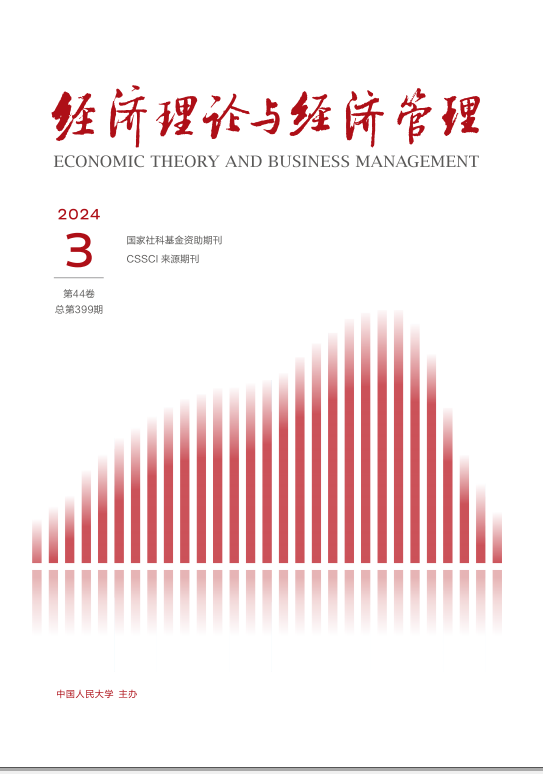

主管:中华人民共和国教育部
主办:中国人民大学
ISSN 1000-596X CN 11-1517/F
主办:中国人民大学
ISSN 1000-596X CN 11-1517/F



刊期:月刊,1981创刊
主管:中华人民共和国教育部
主办:中国人民大学
主编:杨其静
编辑:《经济理论与经济管理》编辑部
广告经营许可证:
京海工商广登字20170128
出版:中国人民大学学术期刊社
ISSN 1000-596X
CN 11-1517/F
